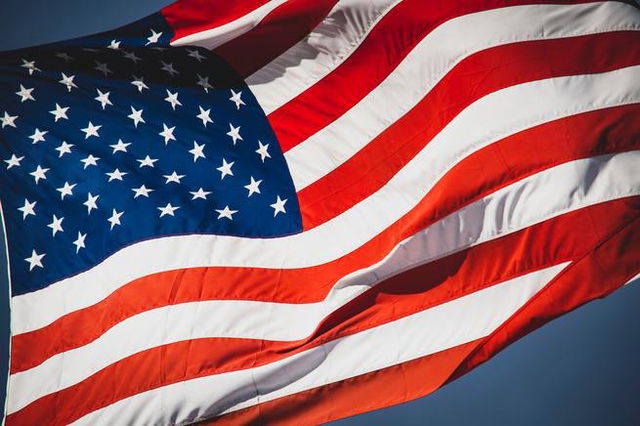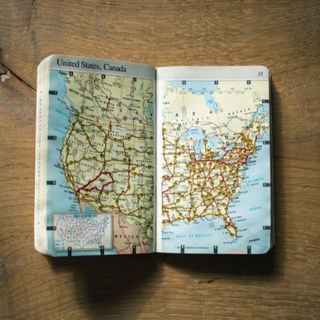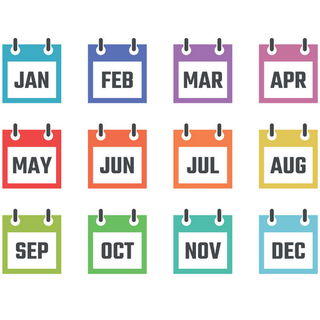Federal holidays are a day off for most people (also known as public or legal holidays). If they fall on a weekend they are observed on the previous Friday or the following Monday.
They are not the only holidays Americans celebrate since, around the country, states and cities have the option of observing their own holidays, as well as these federal holidays.
The Federal Holidays
There are currently 11 federal holidays celebrated each year in the United States. In 2025 these are, in order:
| The Celebration | The Date in 2025 | When is it Generally |
|---|---|---|
| New Year's Day | Wednesday, January 1 | (always January 1st) |
| Martin Luther King Day | Monday, January 20 | (The third Monday of January) |
| Presidents' Day | Monday, February 17 | (The third Monday of February) |
| Memorial Day | Monday, May 26 | (The last Monday of May) |
| Juneteenth | Thursday, June 19 | (always June 19th) |
| Independence Day | Friday, July 4 | (always July 4th) |
| Labor Day | Monday, September 1 | (The First Monday of September) |
| Columbus Day | Monday, October 13 | (the Second Monday of October) |
| Veterans Day | Tuesday, November 11 | (always November 11th) |
| Thanksgiving Day | Thursday, November 27 | (Fourth Thursday of November) |
| Christmas Day | Thursday, December 25 | (always December 25th) |
In the United States, Congress can designate public holidays for federal employees, which businesses, schools, and offices can also observe. Federal holidays are designated by the government in Title V of the United States Code (5 U.S.C. § 6103).
Which are the Oldest Federal Holidays?
The Original Four
In 1870 four holidays were the first to be made official public holidays, they were:
- New Year's Day
- Independence Day
- Thanksgiving Day
- Christmas Day
These holidays had been unofficially recognized and celebrated for many years, including various proclamations by presidents, but it was only when In Ulysses S. Grant signed a bill to recognize the days officially that they were finally made public holidays.
Washington's Birthday
Known officially as Washington's Birthday. George Washington's birthday was the next public holiday to be added to the American calendar. This federal holiday was established in 1879 when President Rutherford B. Hayes signed a bill asking his countrymen to celebrate George Washington's Birthday, over time this evolved to become an observance in honor of all American presidents.
Memorial Day and Labor Day
Following on from George Washington's birthday the next holidays to be recognized and signed into law were:
- Memorial Day: a day in tribute and remembrance of all the men and women who have lost their lives while fighting for their country;
- Labor Day: a holiday that commemorates and recognizes all American workers and their contributions to the country's economy and society.
Memorial Day was originally known as Decoration Day and was widely celebrated with this name from about 1888, although it had been celebrated by some as early as 1868. Despite this, it was not made a national public law by law until considerably later when in 1968 the Uniform Monday Holiday Act put the holiday into law.
Labor Day was officially celebrated for the first time in 1894 when President Grover Cleveland signed a bill adding it to the American calendar.
Which are the Newest Federal Holidays
The Freshest Four
The four newest holidays are:
- Veterans Day
- Columbus Day
- Martin Luther King Day
- Juneteenth
Veterans Day, originally called Armistice Day, honors all military veterans who have served in the United States Armed Forces at any point in time. It was first recognized in 1919 when President Woodrow Wilson made a declaration a year after the end of World War One that the day should be remembered as Armistice Day. It was made into a Public Holiday in 1938 and renamed in 1954.
In 1968 the same Uniform Monday Holiday Act that recognized Memorial Day also made Columbus Day a federal holiday in honor of Christopher Columbus, an explorer who discovered the Americas. The holiday however has faced some controversy with some regions of the United States choosing to honor Native Americans and Indigenous Peoples instead.
Martin Luther King Day was added to the calendar by Ronald Reagan in 1983. Held in honor of the famous civil rights leader, born on January 15, 1929. The day was originally celebrated as Fast Day by many states, including New Hampshire which was the last state to adopt Martin Luther King Day when it changed the day's name in 2000.
The newest holiday of the bunch is Juneteenth National Independence Day, also known as Freedom Day. This holiday commemorates the anniversary of the Emancipation Declaration, which officially abolished slavery in 1865. The holiday was created in 2021 by Joe Biden.
It's a Federal Holiday so Don't Forget...
- There is no mail delivery and the US Post Office is closed.
- Schools and state offices can stay open in theory, however, most will close down for the day.
- Most banks are closed.
- Non-Essential federal government offices are closed.
- The stock market is closed, and trading is suspended.
While these are pretty good guidelines, it might be worth checking to make sure they're true in your area. As well, you may find some shops and businesses are closed, while others remain open, so if you need to visit a certain company it will be worth contacting them before you decide to visit them.
To learn more about the holidays mentioned in this article click the following links:












